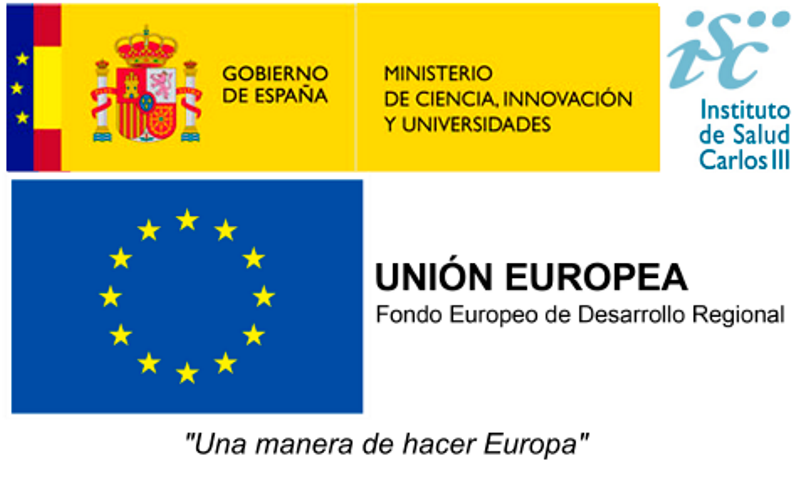WALNUTS
Long-chain Polyunsaturated Fatty Acids and Adolescent Brain Development: A Dietary Intervention

- Duración
- 2015 - 2018
- Coordinador
- Jordi Júlvez
- Financiadores
- Ministerio de Ciencia, Innovación y Universidades. Instituto de Salud Carlos III Unión Europea Este proyecto está cofinanciado por el Fondo Europeo de Desarrollo Regional (FEDER). “Una manera de hacer Europa”
Background
Adolescence is an important period for brain development as a result of increased synaptic plasticity. Omega-3 polyunsaturated fatty acids (n-3 PUFAs) are essential nutrients for brain development and protection against oxidative stress. Walnuts have the highest n-3 PUFA concentrations of all edible plants. Objective: We hypothesize that walnut intake will increase n-3 PUFA availability in the body to a level that enhances the development of the brain during adolescence. We will conduct a long-term (6 months) populationbased randomized controlled trial in teenagers (n=800), and determine the effectiveness of the intervention (four walnuts per day, ~1.5g of n-3 PUFA) in enhancing brain development.
Methods
Fieldwork team from the INMA-Sabadell cohort study will contact cohort families and classmates in collaboration with the schools. Families will receive a basic guide on following a healthy diet in order to ensure implementation and adherence. Brain development outcomes will be measured at baseline and after the intervention. The use of computerized neuropsychological tests will provide the precision required to detect even subtle changes in brain development resulting from the nutritional intervention. Behavioural (socio-emotional) development will be assessed in order to cover a wider picture of brain development. Blood samples will be collected to measure n-3 PUFA levels after the intervention in a randomized subsample from both groups (control/ intervention). Linear regression models adjusted for baseline neuropsychological scores will be used to analyze the intervention effect.
Implications
The outcomes of this Project are expected to be a greater understanding of the role of n-3 PUFA intake (walnut) in brain development. A major goal in public health research is to develop cost-effective health recommendations to teenagers.
Total Funding
121,500 €
Project Code
CP14/00108

Otros proyectos
Ver proyectos pasadosMCC-Spain
Estudio multi-caso control poblacional, incluyendo tumores de alta incidencia en España
Proyecto INMA - Infancia y Medio Ambiente
HELIX
Novel tools for integrating early-life environmental exposures and child health across Europe
EGG/EAGLE
Early Genetics Growth/Early Genetics and Lifecourse Epidemiology
PACE
Pregnancy and Childhood Epigenetics
LIFECYCLE
Early-life stressors and LifeCycle health
OMEGA-NET
Network on the Coordination and Harmonisation of European Occupational Cohorts
BiSC (Barcelona Life Study Cohort)
HARMONIC
Health effects of cArdiac fluoRoscopy and mOdern radIotherapy in paediatriCs
Mobilise-D
Connecting digital mobility assessment to clinical outcomes for regulatory and clinical endorsement
EARLY-ADAPT
Signs of Early Adaptation to Climate Change
COVICAT
Cohorte Covid-19 en Cataluña
ATHLETE
Advancing Tools for Human Early Lifecourse Exposome Research and Translation
CONTENT
Cohorte de COVID-19 en España: dinámica social, salud mental y desigualdades
EUCAN-Connect
A federated FAIR platform enabling large-scale analysis of high-value cohort data connecting Europe and Canada in personalized health
OBERON
An integrative strategy of testing systems for identification of EDs related to metabolic disorders
EXPANSE
EXposome Powered tools for healthy living in urbAN SEttings
AURORA 2021
Actionable eUropean ROadmap for early-life health Risk Assessment of micro- and nanoplastics
ONES
Fine Particle Matter, Fetal Growth, and Neurodevelopment: Examining Critical Windows of Susceptibility
AIR-NB
Pre-natal exposure to urban AIR pollution and pre- and post-Natal Brain development
El impacto de la exposición al metaboloma de esteroides materno-fetales en el crecimiento infantil y los resultados neurológicos (IGRO)
Project Code: PI21/01269
NutinBrain
The role of seafood and nut consumption on human neurodevelopment from pregnancy to adolescence
ALTER - Contaminación del aire, microbiota intestinal y neurodesarrollo en los primeros 24 meses de vida
Project Code: PI21/01278
Alimentación S2: por una dieta saludable y sostenible
Estudio sobre la exposición a nano y microplásticos a través del agua de consumo de Barcelona
¿Es mejor consumir el agua de grifo si queremos reducir la exposición a nano/micropláticos?
UrbanKids
Urban and social environment and childhood obesity – a natural moving2health experiment
Laboratorio Ciudadano de Salud Urbana
Planificación urbana, medio ambiente y salud
Characterizing Oral Exposure to Nanoplastics and Microplastics
Characterization of Oral NMP Exposure
iGenCO
In-Depth Genomics and Cross-Omics Analysis for Undiagnosed Rare Diseases on a User-Friendly Collaborative Platform
5G expOsure, causaL effects, and rIsk perception through citizen engAgemenT
GOLIAT
CityExposomeCat
An Exposome Approach to Urban Health: Individualized Environmental Exposure Assessment in an Adults Population Cohort Study (GCAT)
TwinAir
Digital Twins Enabled Indoor Air Quality Management for Healthy Living
Subclinical Infections in Children and Long Term Health Effects
Infection acquisition in early life and health outcomes in childhood - MARATO TV3
UBDPOLICY
The Urban Burden of Disease Estimation for POLICY Making
Exposición prenatal a sustancias poli y perfluoradas en agua de consumo y neurodesarrollo en el inicio de la vida
Project Code: PI20/00829
Base genética materna y fetal de la función placentaria
Project Code: PI20/01116
TOLIFE
Combining Artificial Intelligence and smart sensing TOward better management and improved quality of LIFE in chronic obstructive pulmonary disease
BWater
Drinking Water in Barcelona: Sustainability and Health Impact Assessment
CUPID
INTERCAMBIO
Interventions to promote mental and physical health in changing working environments due to climate change, sustainable work practices, and in green jobs
intoDBP
Innovative Tools to Control Organic Matter and Disinfection Byproducts in Drinking Water
FINDOOR
FTIR spectroscopy for real-time detection of bacterial outbreaks and the rapid identification of pathogenic serotypes, relapsing infections and antibiotic resistance
OccRF-Health
Occupational exposure to radiofrequency electromagnetic fields: From exposure assessment to study of health in workers and their offspring
EPHOR
Exposome Project for Health and Occupational Research
EXPONIT
Analysing and studying how night shift work affects workers' circadian rhythms and health




